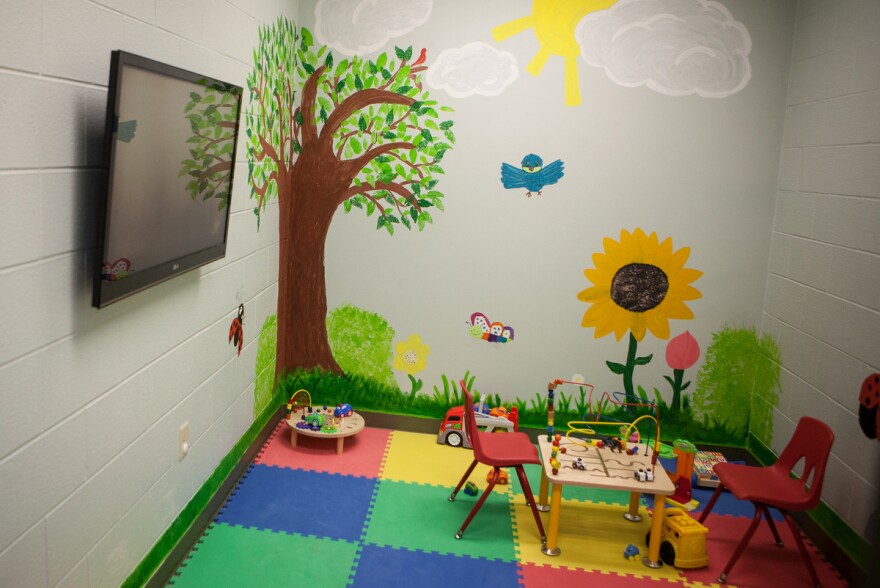Texas’ newest detention center for immigrant children and mothers opened last week in Karnes City, just 54 miles outside of San Antonio. But less than a week out, the facility’s already garnering scorn from immigration attorneys in Austin.
Those attorneys – the same ones who helped shut down the troubled T. Don Hutto detention center north of Austin in 2009 – take umbrage with the fact that the Karnes facility is run by the GEO Group, a for-profit company with a less-than-impeccable reputation.
Immigration attorney Barbara Hines is was part of the group that shut down the Hutto facility. She's ready to do the same with the Karnes County Residential Center as a detention facility for immigrant families, saying immigration authorities haven’t learned from previous mistakes at the now-shuttered facility.
Her office at the Immigration Clinic at the University of Texas Austin's School of Law is sprinkled with mementos from Hutto. The Karnes City facility, she says, has given her flashbacks.
“Hutto was run by the Corrections Corporation of America, which is a for-profit prison company like GEO. They have no training in child welfare," Hines says. "They have run these prisons or detention facilities on a prison incarceration model. If we are going to have them – and I am opposed to them – they should be run by licensed child welfare agencies."
Among the many things Hines remembers from Hutto is how many children lost weight because they were underfed.

Hutto and Karnes are certainly two different facilities, and Immigration and Customs Enforcement (ICE) is behind a huge PR campaign to show how kid friendly the facility in Karnes City is. Still, the question remains – why have a private prison contractor run the facility in the first place?
In Texas, GEO Group manages both prisons and mental health hospitals; over the years it has settled lawsuits for at least 11 deaths and dozens of sexual assaults.
At a facility tour in Karnes City last week, Enrique Lucero, San Antonio field office director for ICE, said the facility was the best possible choice.
"This, in our capacity, was the easiest place to transition for adults with children to accommodate,” Lucero said. “It was a very easy choice for myself.”
Lucero didn’t answer a question from KUT News as to why ICE chose GEO to manage the facility.
After the tour, another ICE official said the agency had no choice in picking GEO. The contract, he explained, is not through ICE but through Karnes County.

Bob Libal says subcontracting is part of the strategy GEO has used to stay in business despite persistent lawsuits. Libal leads Grassroots Leadership – a nonprofit organization that, among other things, researches the shortcomings of for-profit prison corporations.
"Whenever anything goes wrong ICE says, ‘This is not our problem, this is the county's problem,’” Libal says. “But really, you have layers of lack of transparency and lack of accountability that are built into these contracts.”
Libal says GEO is Texas' first choice to run detention centers, prisons and mental health facilities in part because they save the state money by cutting costs.
But he also notes the group is a very generous political contributor at the state and federal levels, and has one of the strongest lobbying teams he’s ever seen. Two members of the company’s board of directors are former members of the George W. Bush administration; Libal says there’s a sort of “buddy-buddy” relationship within GEO's county contract negotiations.
The Karnes County Residential Center has only been in operation for a handful of days. There have yet to be complaints, but attorney Barbara Hines says she’s ready to address them if they do.
The GEO Group declined an interview with KUT News for this story, suggesting we contact Immigration and Customs Enforcement.





